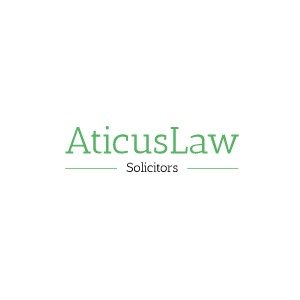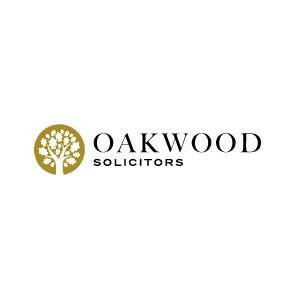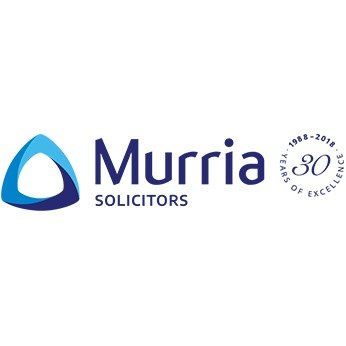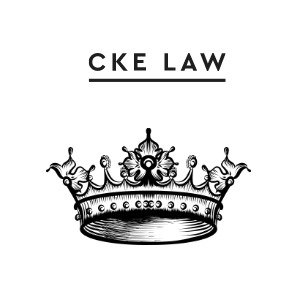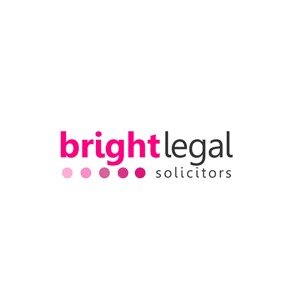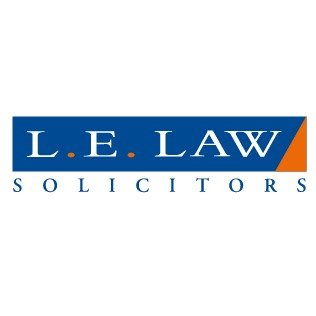Best Bankruptcy & Debt Lawyers in United Kingdom
Share your needs with us, get contacted by law firms.
Free. Takes 2 min.
Or refine your search by selecting a city:
List of the best lawyers in United Kingdom
United Kingdom Bankruptcy & Debt Legal Articles
Browse our 1 legal article about Bankruptcy & Debt in United Kingdom written by expert lawyers.
- Debt Collectors in the UK: Stop Harassment and Verify Debt
- - Debt collectors must follow FCA rules. You can set contact limits, insist on writing only, and complain if they ignore this. Aggressive or frequent contact can be harassment under UK law. - Verify every debt before paying. Use a prove-it letter and, for credit agreements, a Consumer Credit Act... Read more →
About Bankruptcy & Debt Law in United Kingdom
Bankruptcy and debt law in the United Kingdom covers the regulations and processes that help individuals and businesses address and manage their financial difficulties when they are unable to repay debts. The primary aim of these laws is to provide a fair mechanism for debt resolution, balancing the interests of debtors and creditors. Two key frameworks manage these situations: Bankruptcy for individuals, and insolvency procedures for businesses. Bankruptcy is a legal status that provides individuals relief from overwhelming debts, while businesses may enter into administration, liquidation, or company voluntary arrangements.
Why You May Need a Lawyer
Legal assistance can be crucial in several situations concerning bankruptcy and debt:
- Advising on Options: Understanding the best course of action whether it involves negotiation with creditors, entering into an individual voluntary agreement (IVA), or declaring bankruptcy.
- Representation: Having a legal advocate can be essential when dealing with court proceedings or creditor arrangements.
- Explaining Rights and Obligations: Lawyers can clarify your rights and responsibilities under UK law, including what assets you can keep during bankruptcy.
- Dispute Resolution: Assistance is often required in disputes with creditors or to challenge wrongful proceedings.
- Navigating Complex Processes: Bankruptcy and debt resolution can involve intricate legal processes where expert guidance ensures compliance and appropriate action.
Local Laws Overview
The key aspects of local laws relevant to bankruptcy and debt in the United Kingdom include:
- Bankruptcy Process: Individuals in distress can apply for bankruptcy or be forced into it by creditors. It typically lasts one year, with debts being discharged at its conclusion, although some assets may be sold to repay creditors.
- Individual Voluntary Arrangement (IVA): A formal agreement with creditors to pay off debts over time, supervised by an insolvency practitioner.
- Debt Relief Orders (DRO): For individuals with relatively low levels of debt and few assets, offering a simpler and cheaper alternative to bankruptcy.
- Business Insolvency: Options include liquidation, administration, and company voluntary arrangements (CVAs) based on a business's financial situation and creditors' preferences.
- Debt Management Plans (DMPs): Informal agreements to help manage debt repayments without court involvement.
Frequently Asked Questions
What is the difference between insolvency and bankruptcy?
Insolvency is a general state where a person or company cannot meet their financial obligations. Bankruptcy is a formal legal process involving individuals, often resulting from insolvency.
How does declaring bankruptcy affect my credit?
Bankruptcy significantly impacts your credit score and remains on your credit report for six years, affecting your ability to borrow money or secure financial products.
Can creditors still contact me during bankruptcy?
Once a bankruptcy order is in place, creditors listed in the bankruptcy are no longer able to contact you to chase debts, except under specific circumstances.
What assets can I keep if I declare bankruptcy?
Essential assets such as tools of your trade and basic household items are usually exempt, but other assets may be used to pay off debts.
Are my debts written off once I enter into an IVA?
While an IVA does not immediately write off debts, any remaining debts after the completion of the IVA term (typically five years) are usually written off.
What happens if my creditors reject my IVA proposal?
Negotiation can be attempted, but if an agreement cannot be reached, other debt resolutions might need consideration, such as a Debt Management Plan or bankruptcy.
Can I stop bankruptcy proceedings?
Once initiated, stopping bankruptcy proceedings can be difficult and may require legal intervention, especially if requested by creditors.
How long does bankruptcy last?
Bankruptcy generally lasts for 12 months, but this can vary depending on individual circumstances and compliance with the bankruptcy terms.
Is my pension affected if I declare bankruptcy?
Pensions are usually protected in bankruptcy, but any lump sum payments you are entitled to may be claimed by the trustee for your creditors.
What are the consequences of a business going into liquidation?
Liquidation leads to the closure of the business, with its assets sold to pay creditors, employees may lose their jobs, and directors may face restrictions or investigations.
Additional Resources
Here are some resources and organizations that could be helpful:
- Insolvency Service: Provides guidance and resources including bankruptcy, DROs, and insolvency practitioner information.
- Citizens Advice Bureau: Offers free advice on rights and options related to debt and bankruptcy.
- StepChange Debt Charity: Offers free debt advice and management plans.
- The Money Helper (formerly The Money Advice Service): Provides guidance on financial issues including managing money and debt advice.
Next Steps
If you need legal assistance in matters of bankruptcy and debt, consider the following steps:
- Consult a Solicitor: Reach out to a solicitor specializing in bankruptcy and debt law for personalized advice.
- Use Legal Aid Services: Check if you qualify for legal aid, which may cover some or all of your legal costs.
- Contact a Debt Advice Charity: Charities like StepChange or National Debtline offer free, confidential advice tailored to your circumstances.
- Prepare Documentation: Compile all relevant financial documents, including income, expenses, debts, and any creditors’ correspondence to present a complete picture to your legal advisor.
- Explore Online Resources: Utilize online guides and tools from reputable organizations to understand your options.
Taking informed and timely actions can significantly impact the outcomes in navigating financial difficulties related to bankruptcy and debt.
Lawzana helps you find the best lawyers and law firms in United Kingdom through a curated and pre-screened list of qualified legal professionals. Our platform offers rankings and detailed profiles of attorneys and law firms, allowing you to compare based on practice areas, including Bankruptcy & Debt, experience, and client feedback.
Each profile includes a description of the firm's areas of practice, client reviews, team members and partners, year of establishment, spoken languages, office locations, contact information, social media presence, and any published articles or resources. Most firms on our platform speak English and are experienced in both local and international legal matters.
Get a quote from top-rated law firms in United Kingdom — quickly, securely, and without unnecessary hassle.
Disclaimer:
The information provided on this page is for general informational purposes only and does not constitute legal advice. While we strive to ensure the accuracy and relevance of the content, legal information may change over time, and interpretations of the law can vary. You should always consult with a qualified legal professional for advice specific to your situation.
We disclaim all liability for actions taken or not taken based on the content of this page. If you believe any information is incorrect or outdated, please contact us, and we will review and update it where appropriate.
Browse bankruptcy & debt law firms by service in United Kingdom
United Kingdom Attorneys in related practice areas.
Browse bankruptcy & debt law firms by city in United Kingdom
Refine your search by selecting a city.



